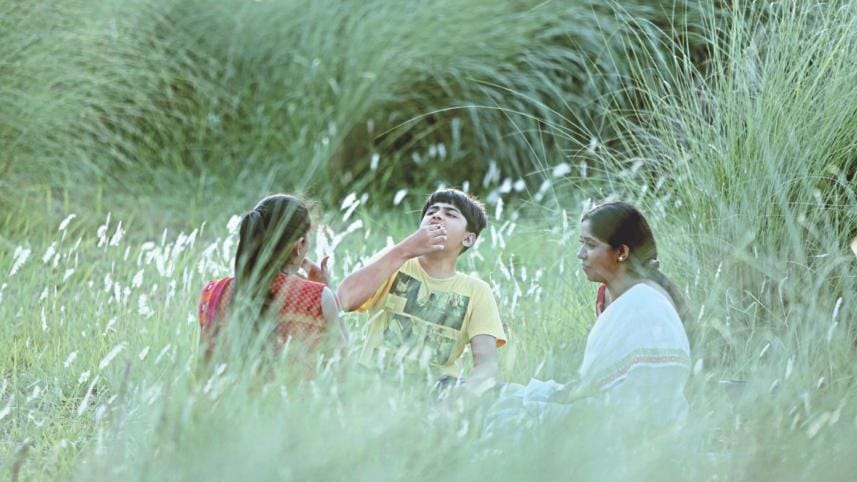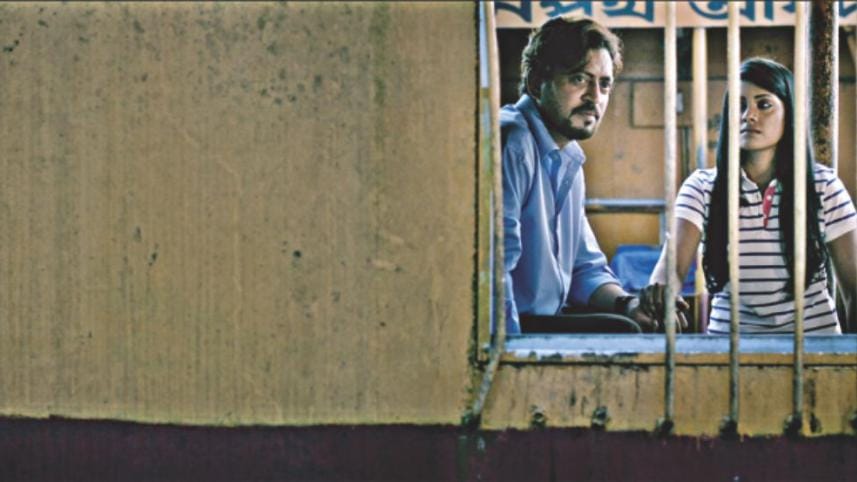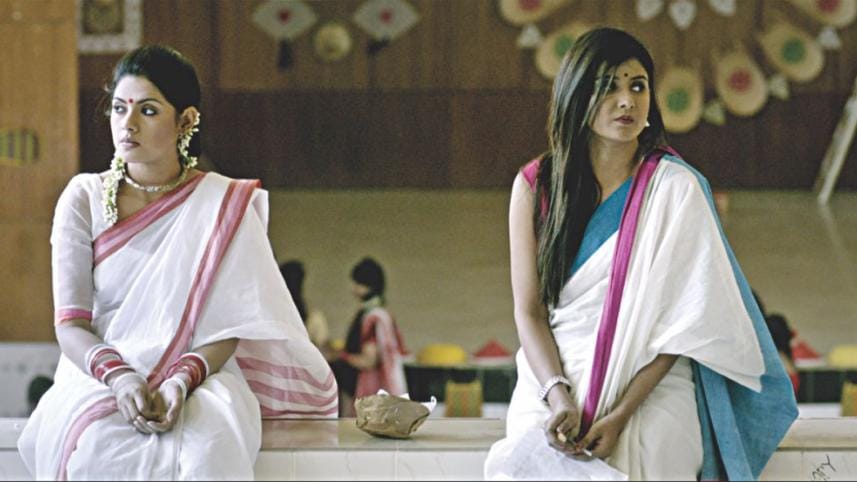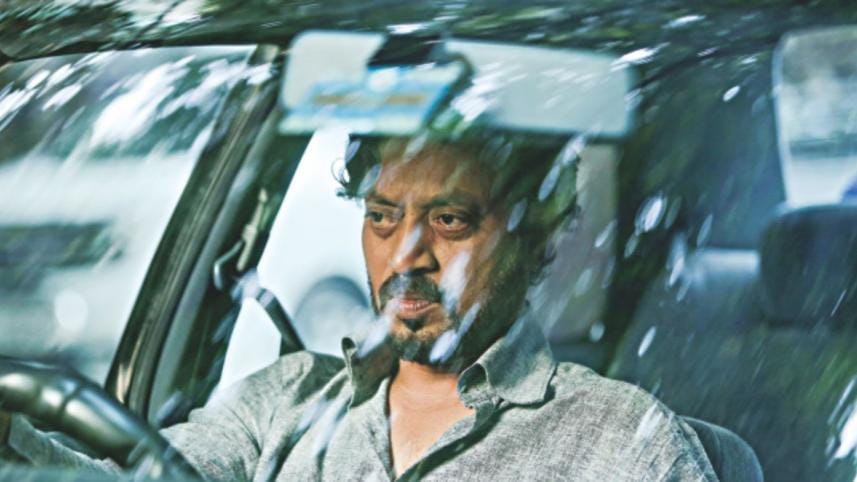Doob: Farooki's Finest Work

Since the very unveiling of the film, Doob has been surrounded by hype and controversy. One of the reasons for the controversy is the inspiration taken from Humayun Ahmed's life, which I will get to. The film featured Irrfan Khan, who is undoubtedly an international star and his inclusion had the world talking about the film. If I am not wrong, the film was the first to be simultaneously released in theatres of India, Bangladesh, Australia and some other parts of the world. Even before its release, Doob has been a consistent topic for debate on social media.
Yes, the film was somewhat inspired by Humayun Ahmed, but it is in no way a biopic and the people who actually saw it in theatres can attest to that. What Sarwar did, with commendable skill, was handling the story with great maturity and subtlety. From storytelling to direction, it is obvious that he has honed his craft as a director and has reached a level of near-perfection with this particular film. The language that he has wanted to convey to the audience for so long was finally molded in words with Doob.

One of the best aspects of Doob is the use of 'silence' in the film. As the saying goes, "some things are better left unsaid". Sarwar has masterfully used silence in the film to such extent that the audience actually feels the emotions of the character instead of being told what to feel. Everything from the pitter-patter of rain-drops on Irrfan's car to the rustling of the leaves when he walks over them is masterfully portrayed. The subtlety touches the heart. In turn, aforementioned "silence" became a character within the realms of the world that was presented by Doob. It helps turn the void felt by the protagonist into a tangible entity; one that tears into the heart of anyone who is following the story. The magic that the director has created is unprecedented and completely original. The language is the director's own creation, and I am certain that no one will be able to say that they have seen quite a film before. Sarwar's previous films, which I thought were filled with excessive immaturity, do not hold a candle to this. The question is: how did this all change so suddenly? The answer lies in how much the director has learned over time. It is obvious that he always had the talent; it was just the question of transcribing that talent into his works.

We often talk about "new wave" films, and young directors have always been in the forefront of these films. After watching Doob, I really did feel that this will begin another new wave of films in the country. This will help move towards creating our own language in films, one which will be distinguished and recognized by the world as inherently 'Bangladeshi'. Meanwhile, Sarwar has made a reputation for himself in the international film scene, and this is nothing but positive for both him and the industry.

If I sound a little biased in this review, it might be due to the fact that I honestly was moved by the film. People have raised questions about trivial matters in the film such as Irrfan Khan's Bengali dialect, but that hardly matters as he has put forth a top-notch performance that does complete justice to his character even though Bengali is not his native tongue. Tisha, Rokeya Prachi, Parno Mitra and all the cast held their own very well. The director's selection of location is also worthy of mention, as well as the screenplay. The only 'bad' thing I have to say about the film is the use of the song. Chirkutt was clearly not at their best with the song, and it did not in any way complement the film.

When it comes down to it, Doob is a film that should be seen by everyone because it consists of masterful storytelling, relatable characters and a very strong cast. I would like to congratulate Mostofa Sarwar Farooki for his wonderful accomplishment and wish him all the very best for the future; which hopefully contains many more wonderful films that are in store for us.

By Rafi Hossain



 For all latest news, follow The Daily Star's Google News channel.
For all latest news, follow The Daily Star's Google News channel.
Comments